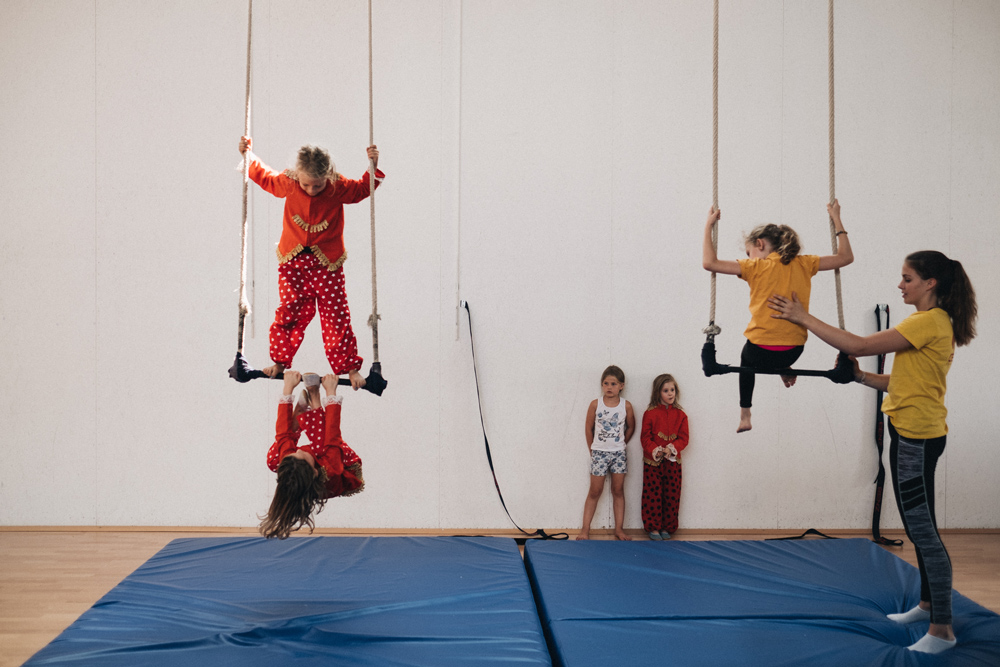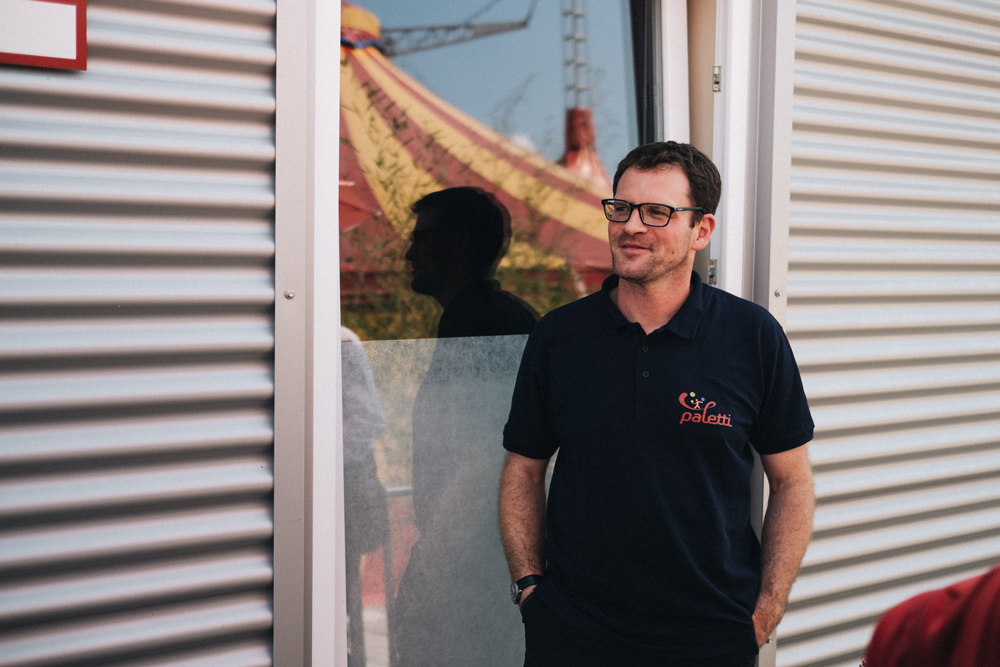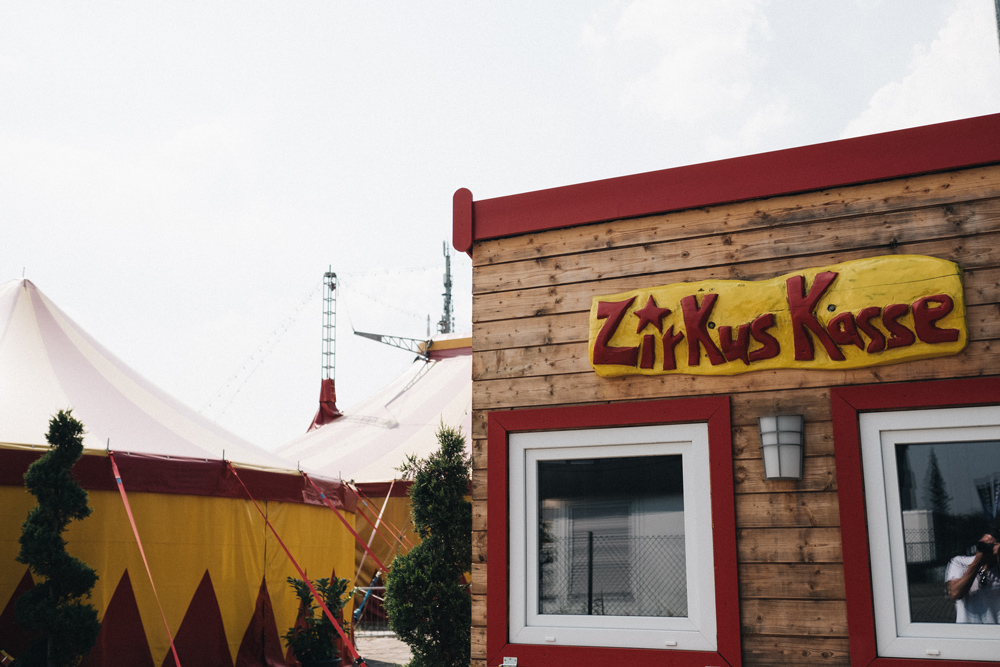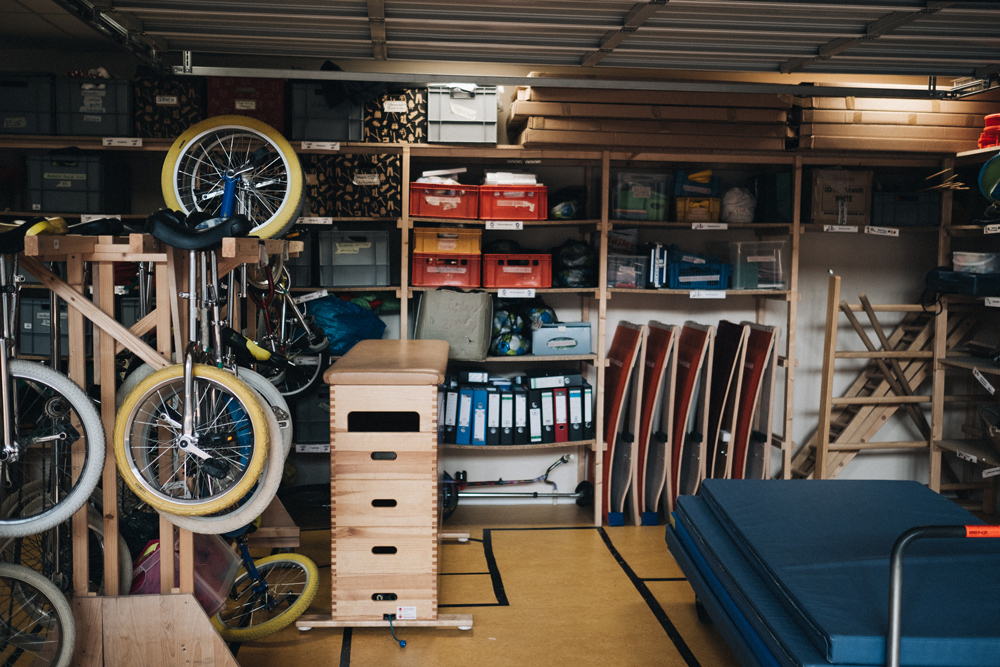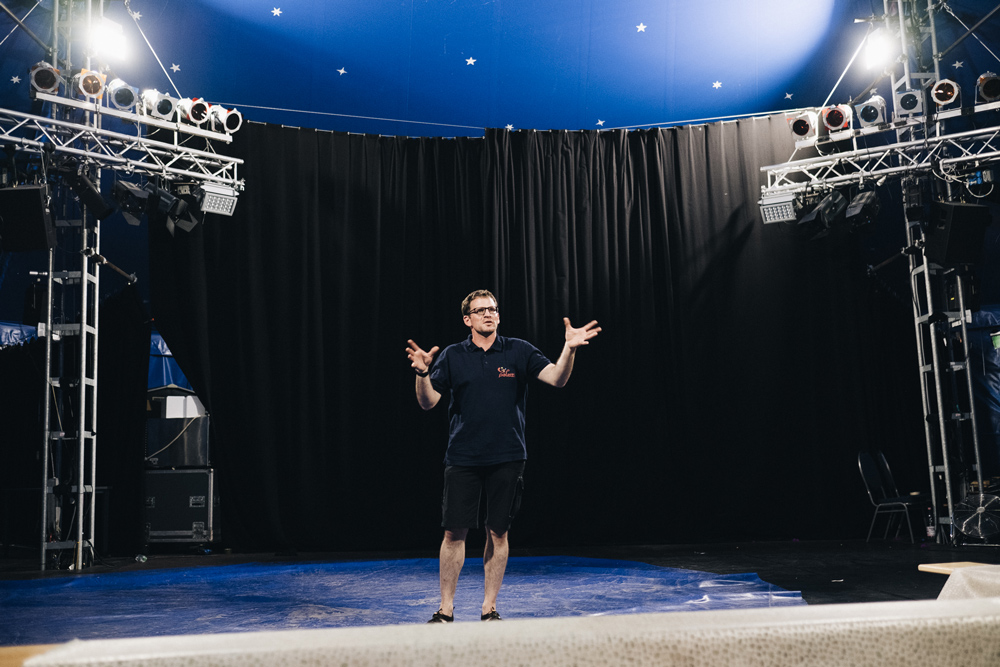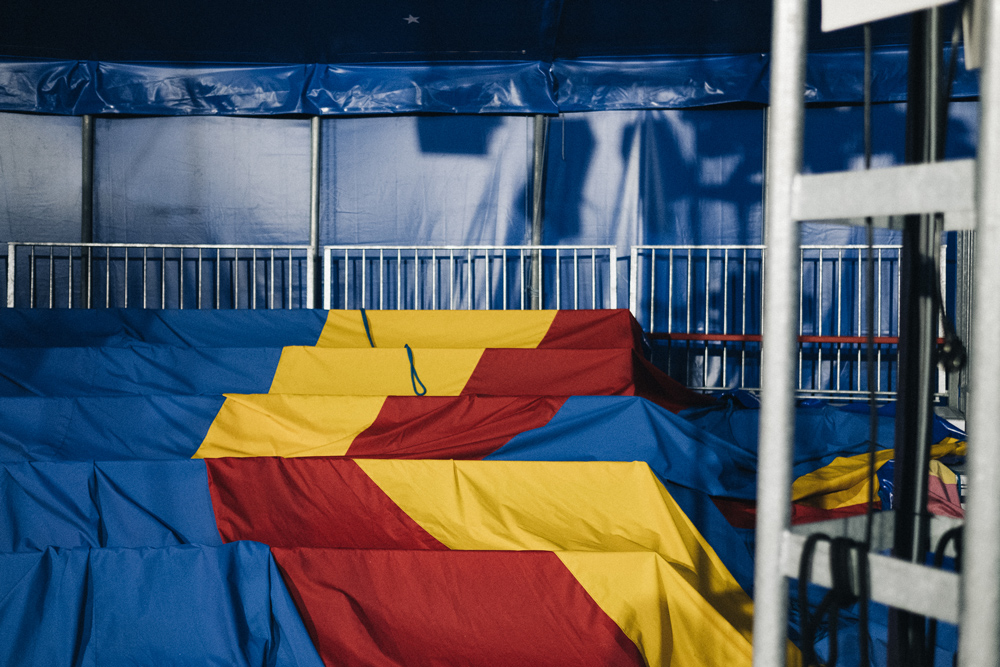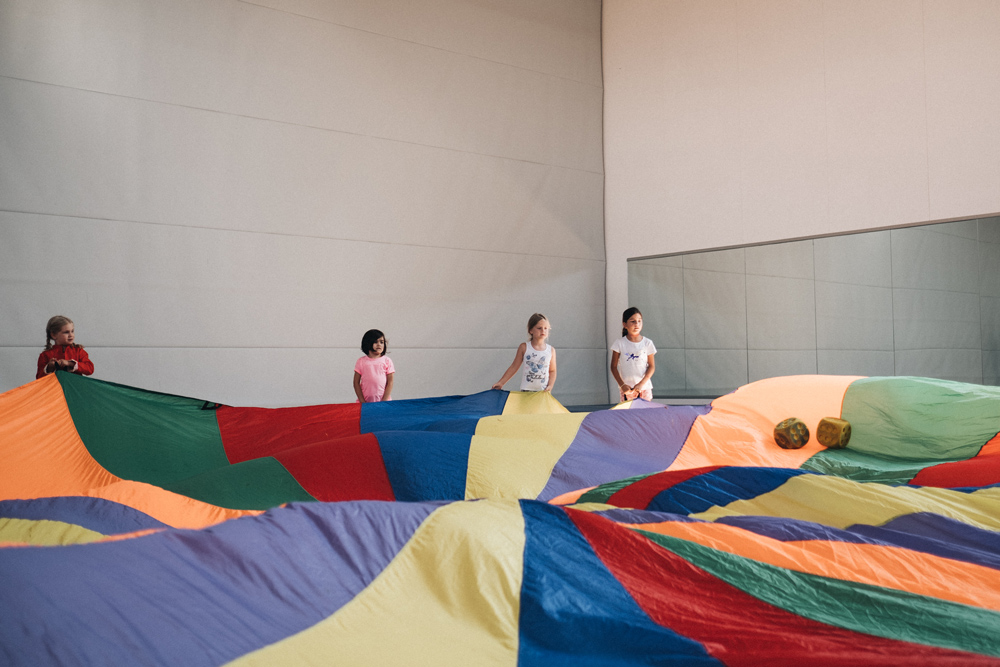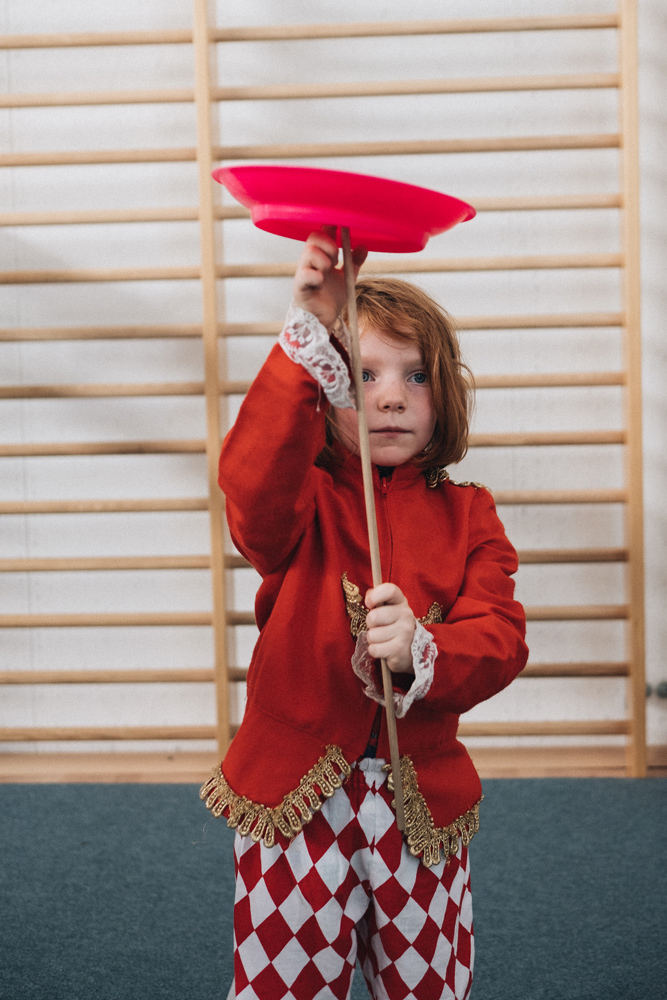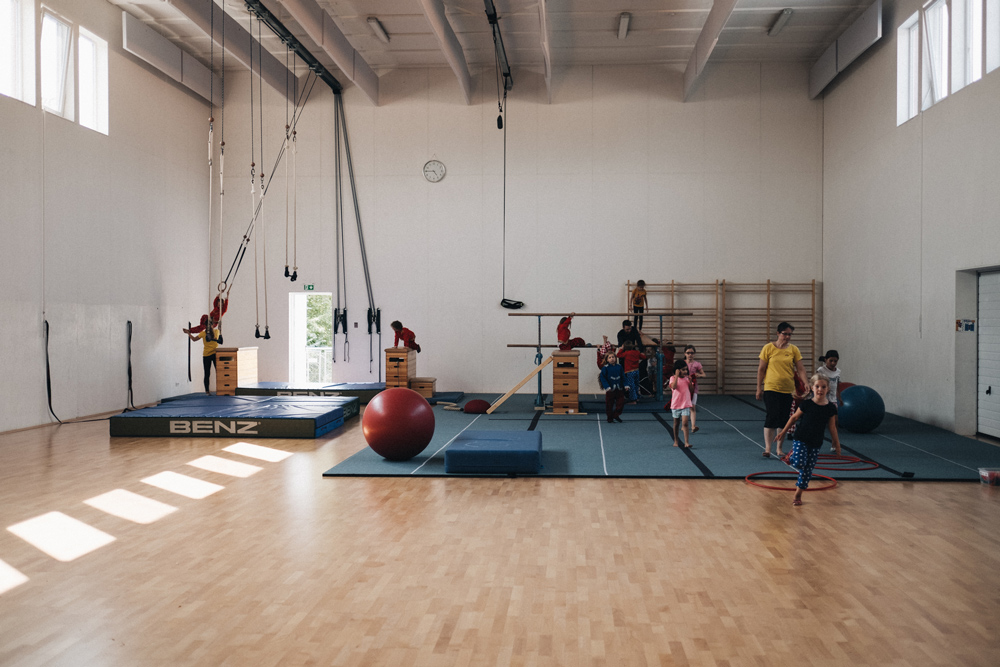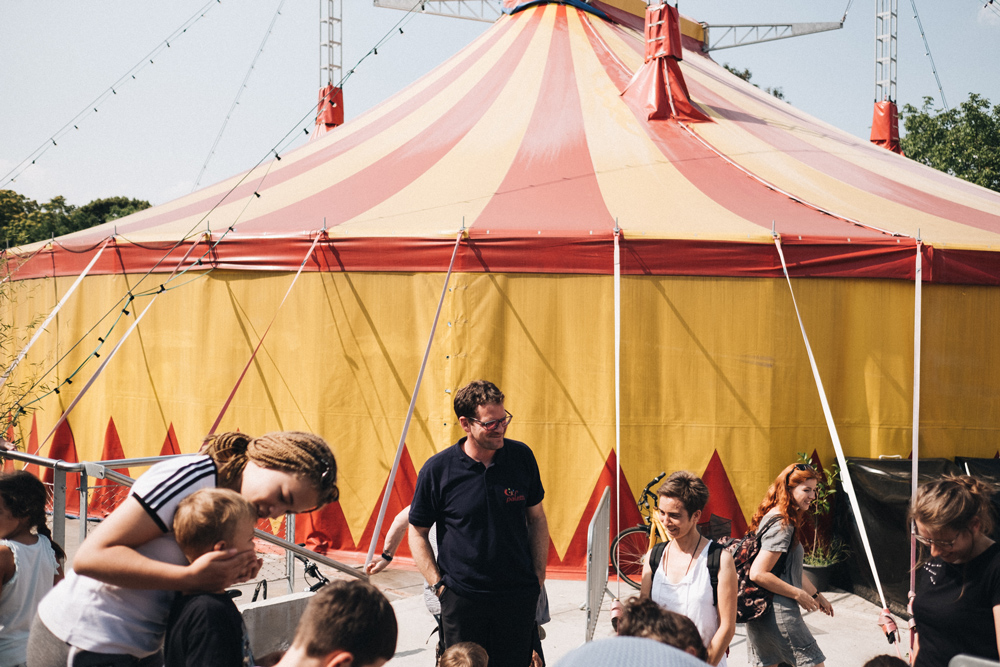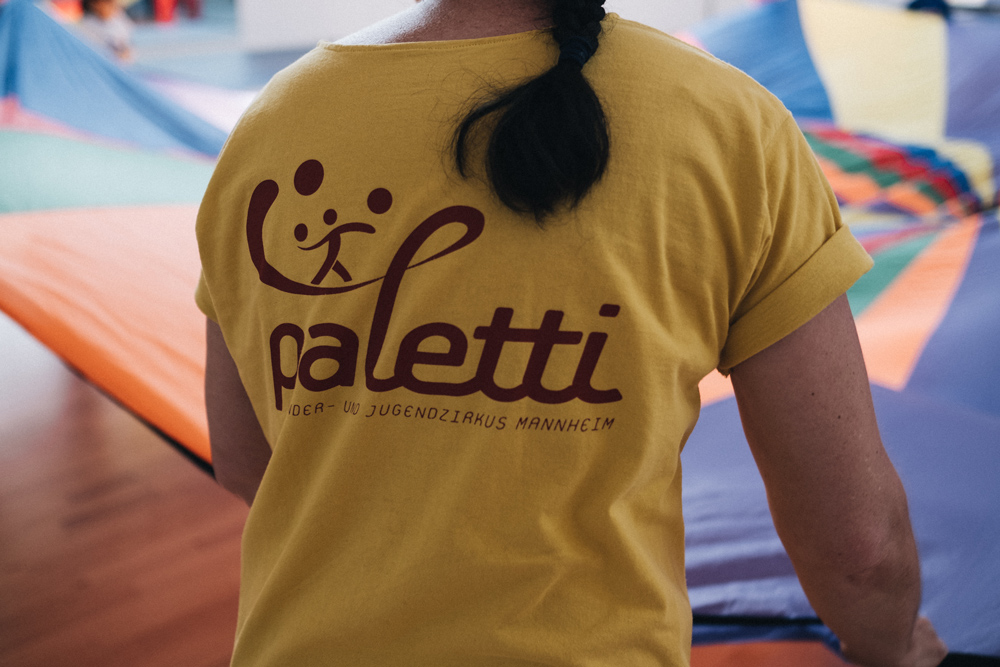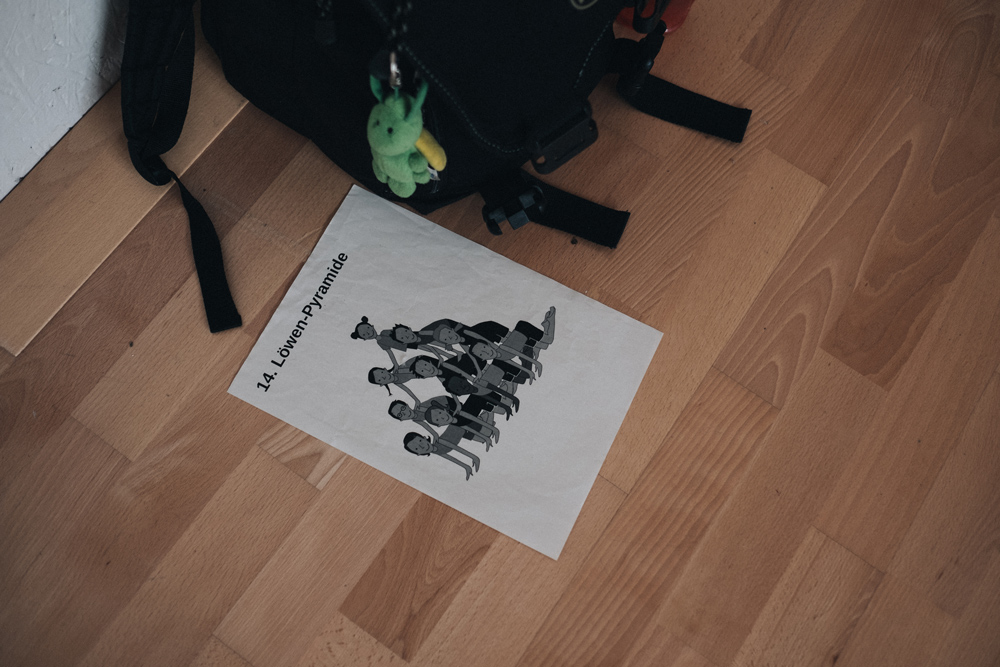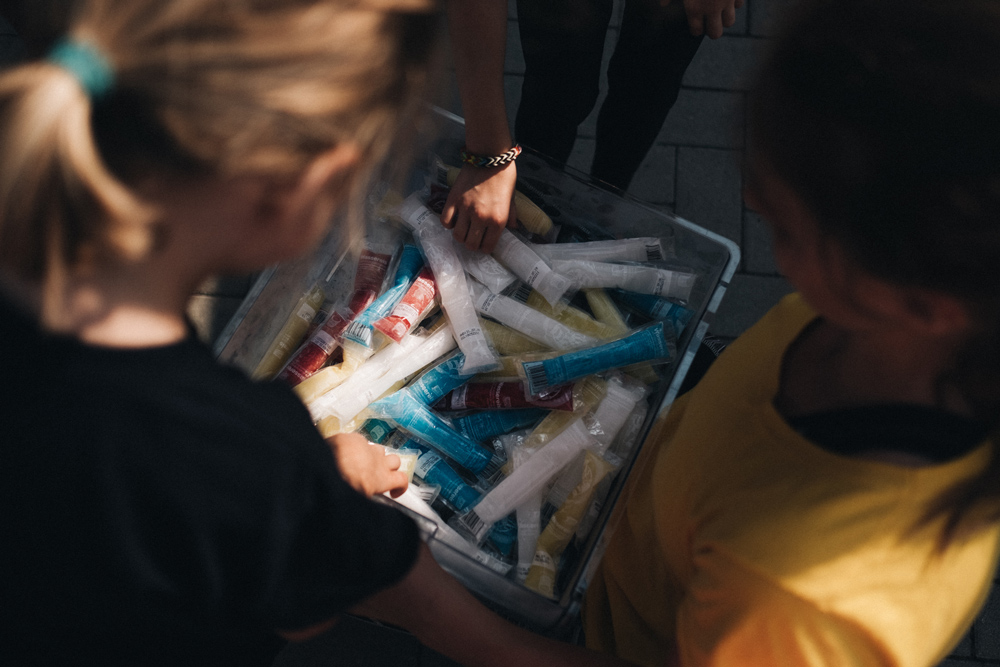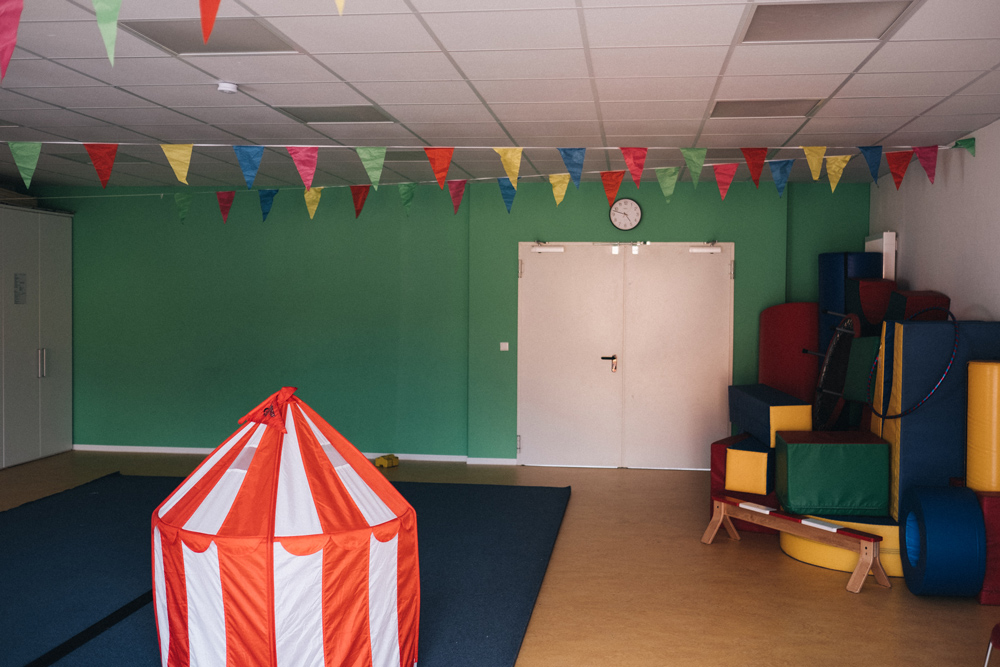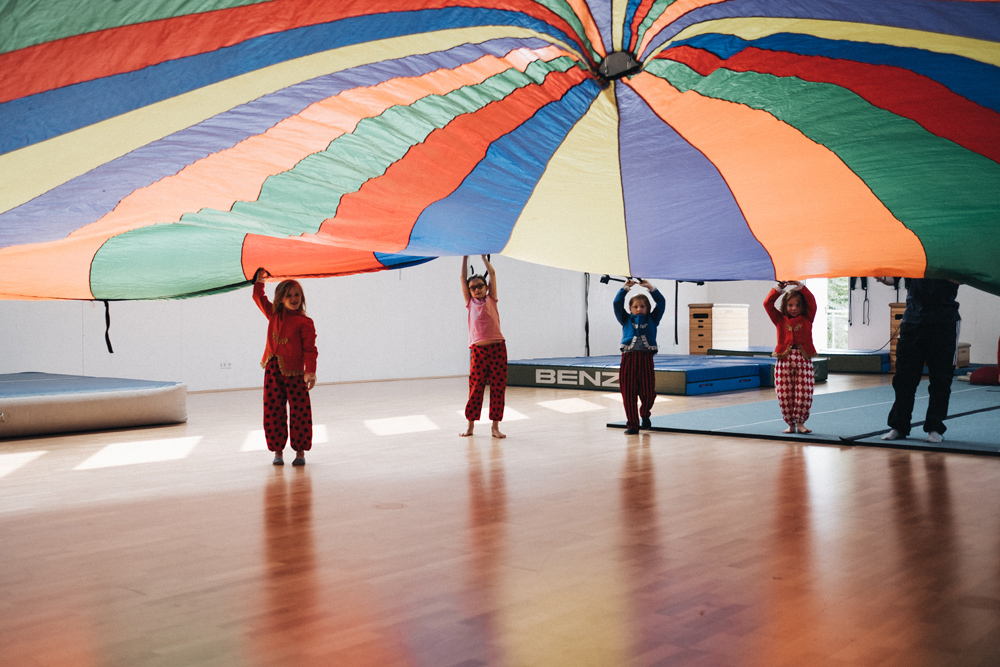However, having passed secondary school he thought: “I’ll do something decent for a beginning.” The son of a lawyer studied law. He enjoyed it and did artistic activities to decompress. The performances paid for his keep. Lawyer or clown? After the completion of his studies, it was his heart that finally took the decision.
“We don’t offer some kind of sports discipline, our sport is the entire circus realm.”
Tilo keeps working as clown, fire juggler or “waggish waiter” on a unicycle. In the youngsters’ circus, the feats consist of rotating colourful plastic plates balanced on rods—on Janina’s, Linus’, Asra’s, Leo’s and Nick’s little finger tips. “For fun,” Janina says. And Linus joins her: “Because it is fun.” The six-year olds shrug. It is evident that they find the question, why they come here, quite silly. The answer is, of course, because it is fun.
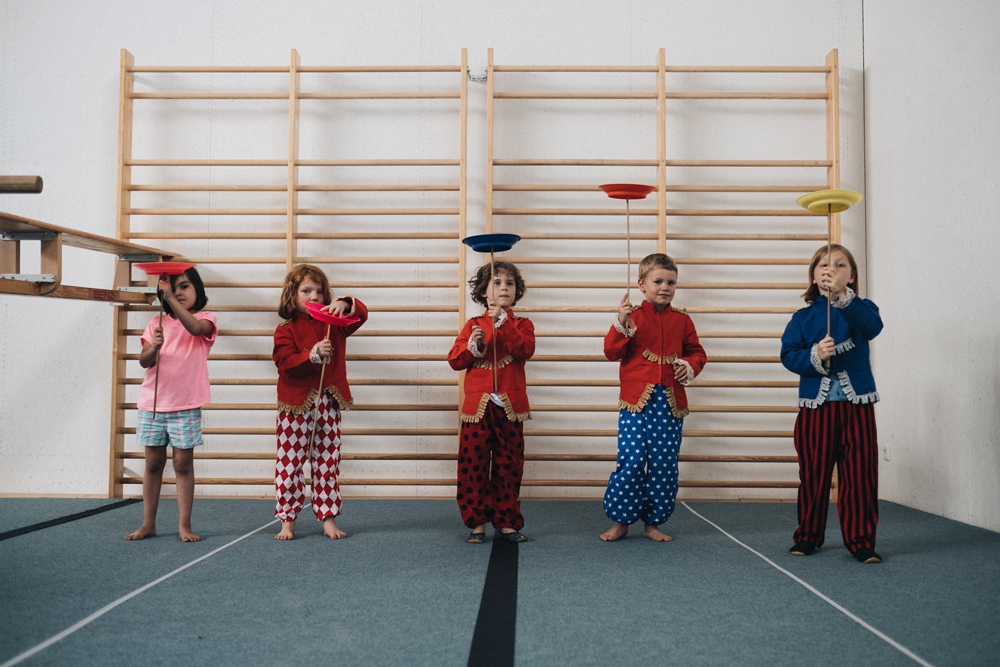
Young artists are practicing with colorful, rotating plastic plates on bars.
Paletti is a sports association, however, it does not work like competition-oriented clubs. The hall and the tent are located on the grounds of Pfeifferswörth industrial estate, between the university hospital and the Feudenheim part of town right on the waterfront of the Neckar river. 36 coaches look after 15 groups. Eight permanent employees, three of which work full time, act behind the scenes to keep the business going. There is a flea circus, where even one-year olds can perform together with their parents; there are casual exercises and workshops; and there are donations-financed projects such as Zirkus Aufwindikus (“upswing circus”), which gives children of socially disadvantaged families the opportunity to join Paletti circus with the support of the association Aufwind Mannheim (“Mannheim upswing”). The circus also undertakes various cooperation projects with partners, such as schools. These projects are as much about language education as they are about physical exercise. Tilo wants to consolidate inclusion. Scheduled soon is a show in which children with and without impairments perform together.
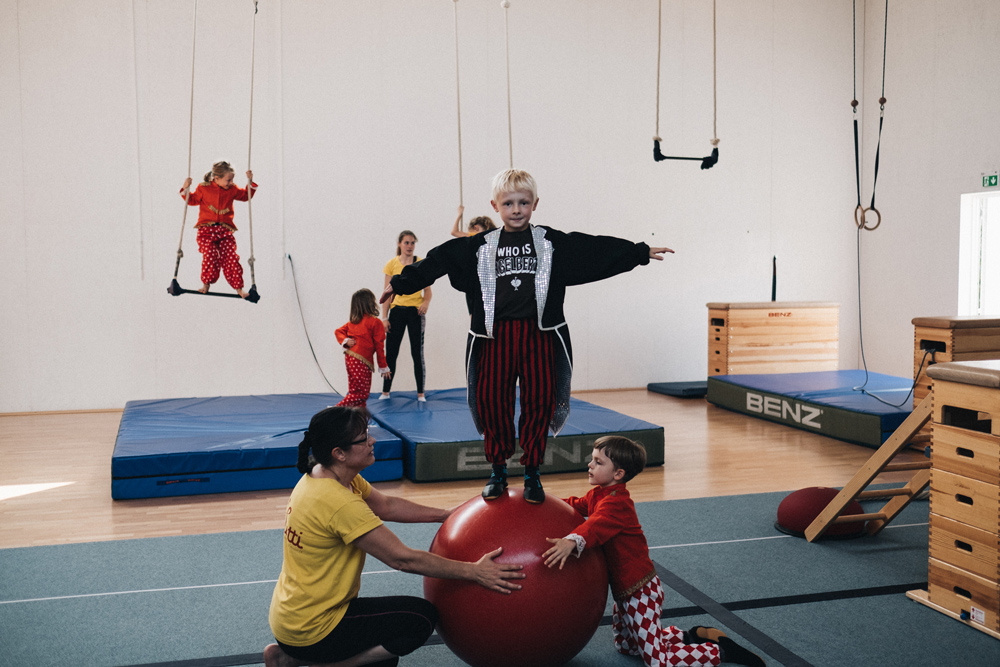
The association’s head presents the red and yellow circus tent proudly: measuring 24 metres in diameter, 8.5 metres from the ground to the dome and accommodating 550 seated spectators, the tent is located right in front of the association’s sports hall. Narrow red stands, a starry sky, large towers of technical gear and the steel scaffolding for trapeze acts and rope art demonstrations high above the heads of the crowd generate a classical circus scenery and atmosphere.
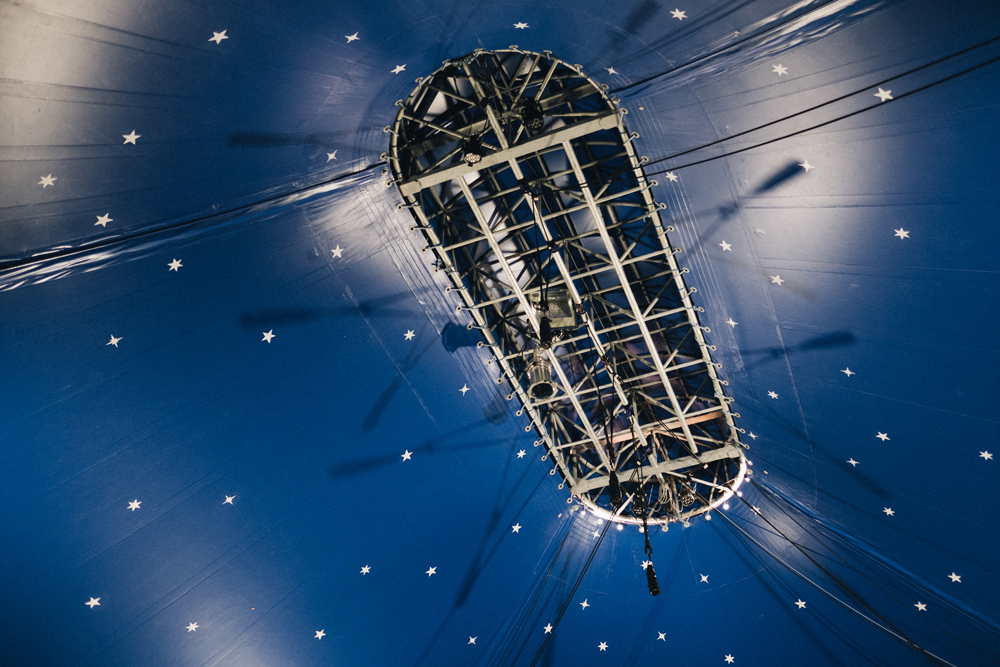
Children everywhere try to cool down with ice lollies. Their parents and grandparents sit in the foyer, sisters and brothers as well. It’s show time: workshop performance! Now the little performers can present what they have learnt. Sandra Schreiner waits excitedly. If her son Florianwas in a fluster before today’s performance?“ No, we are,” his father, Marcel, replies with a smile. Florian is five. “He enjoys performing and being on stage and he is quite talented in sports,” Sandra adds. Her husband finds the offer unique; they appreciate the combination: “The children learn acrobatics—but also rules and adapting to a group.”
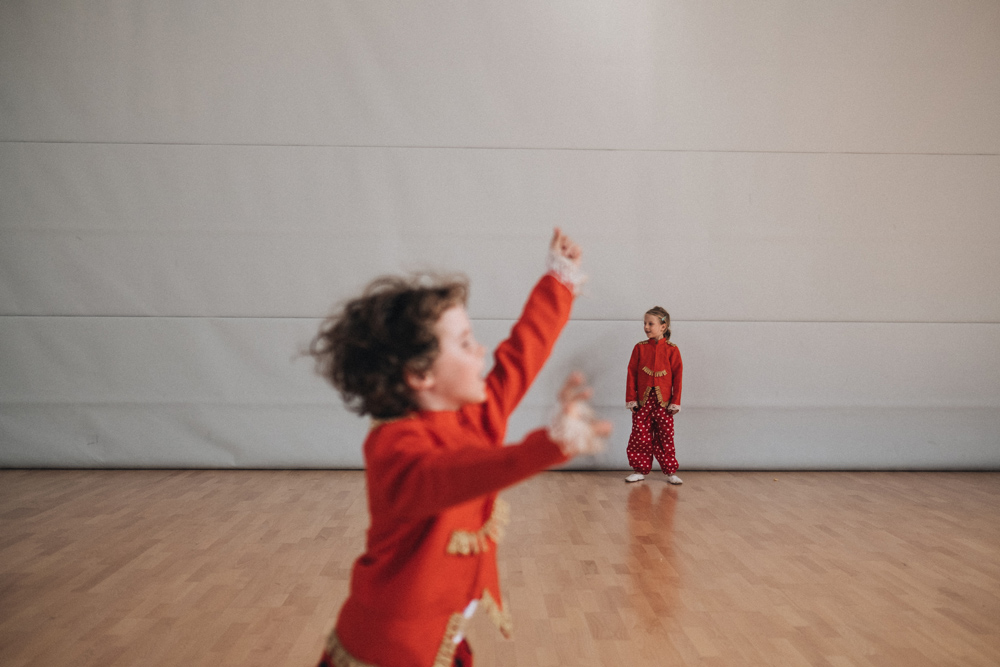
This is what matters to Tilo as well: He wants the little performers to gain self-confidence. “Here they get to know their bodies and practise fine motor skills. They strengthen their muscles, fitness and sense of balance,” when they do performances in the air, tightrope acts or unicycle demonstrations for example. At the same time they learn to work together, help one another und build trust. Safety matters a lot, “the coaches are very careful about hazards.”
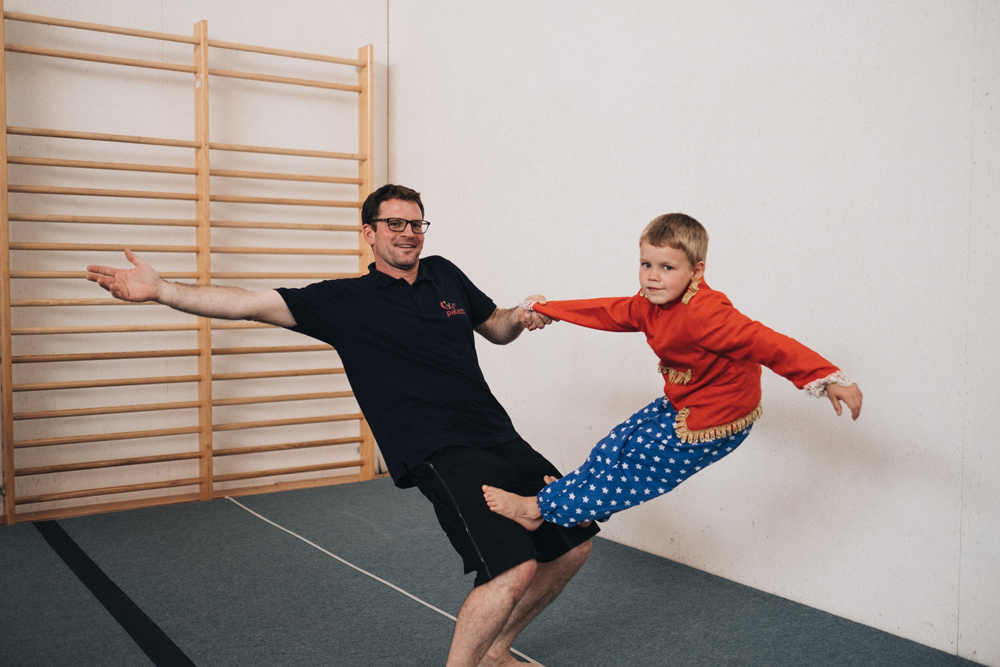
In the meantime, little acrobats swing in the background on rings hanging down from the ceiling from box to box. Now, they gather as a group and present another feat: pairs of children jointly hold heavy PVC balls; others then jump bravely with both feet at the same time from ball to ball. And again: The other children secure the jumper. Tilo’s oldest son, six years old, is part of the group. His younger brother, four, will perform in the neighbouring part of the hall in a minute. So Tilo watches the clock—he can’t miss it, of course. His daughter is still too young for acrobatics.
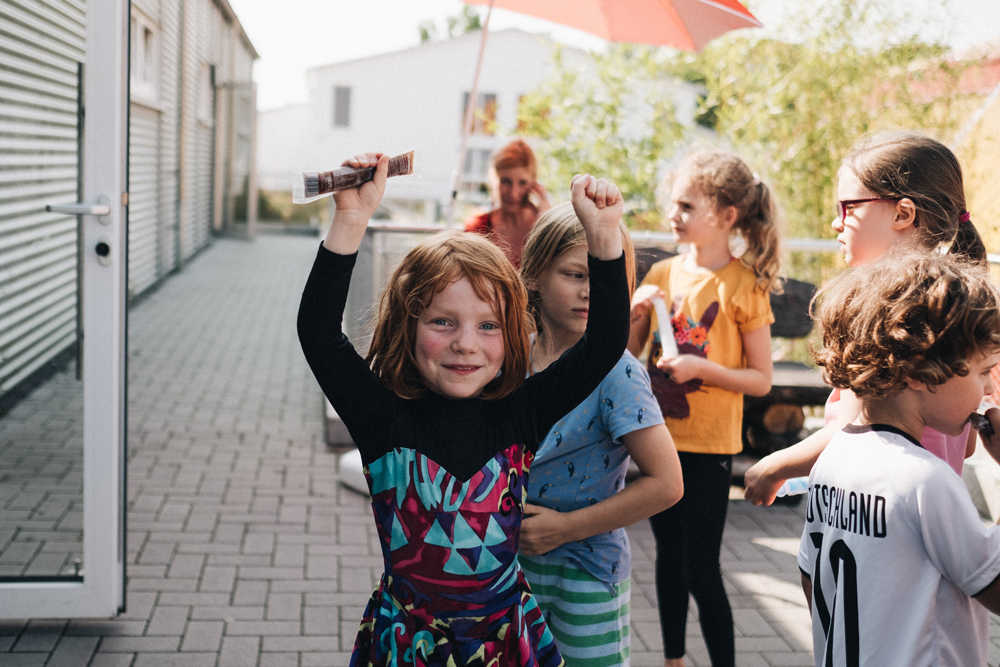
The circus industry does not enjoy an excellent reputation. The Mannheim ‘ringmaster’ is prejudiced against sometimes. He replies to such comments explaining the Paletti concept, which is no traditional family circus one. There is an educational philosophy to it, and animals that aren’t kept appropriately don’t belong to a circus programme. “There are black sheep in the industry, indeed, and they ruin its standing.” Contrary to this, circus means first and foremost a “grandiose form of art” that unites acrobatics, acting, dance, music and theatre, he tells us. Tilo believes this diversity to attract so many children and adolescents. Lawyer or clown? It was his heart that took the decision. “We don’t offer some kind of sports discipline, our sport is the entire circus realm.” And so we jump for joy in Mannheim—at Paletti circus.
www.zirkus-paletti.de
